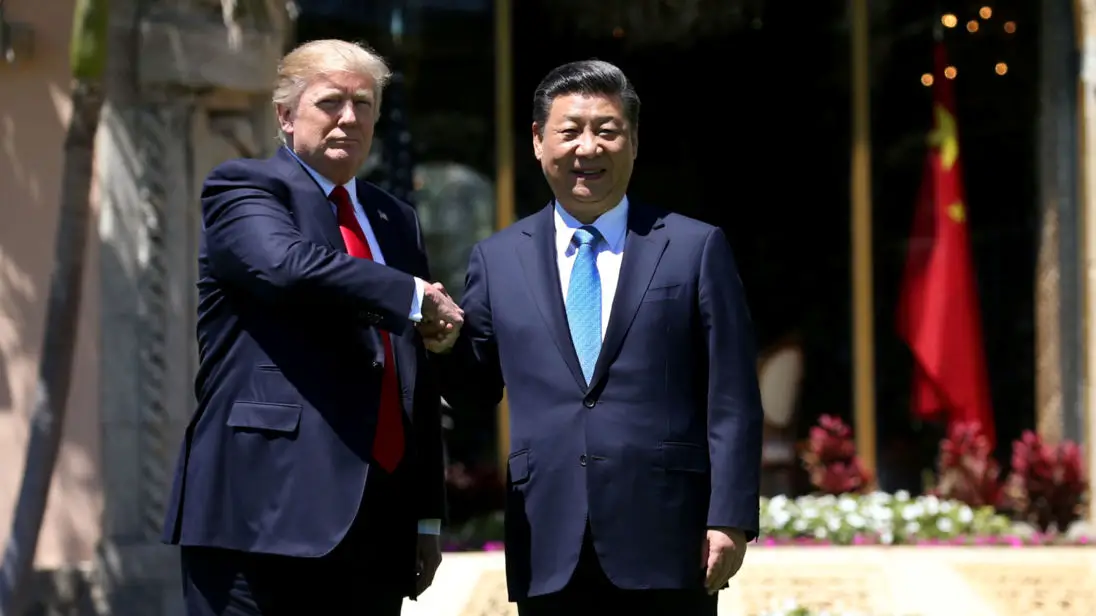For the first time since he assumed the role of president, an executive action that Donald Trump took was met with fairly widespread approval.
I am referring to his authorization of the Tomahawk missile strike that inflicted damage upon an airbase held by the Assad regime, in response to the regime’s alleged chemical attacks against its own civilians. Of course, an attack like this raises more than a few questions about the future of the American presence in Syria. I argue that this strike actually has very little to do with Syria, though.
Syria is not a place where America wants to involve itself. Between a regime backed by the Russian military, a non-united rebel force, a disenfranchised Kurdish population and the threat of ISIS, a solution that will contain the violence and create stability in the region seems a long way off. For America to put boots on the ground would be to enter a complex and messy conflict with no foreseeable end.
So, why then did Trump order the strike? The most straightforward answer, and the one that has been publicized in the media, is that Assad needs to be sent a message that the use of chemical weapons will not be tolerated by America’s newest president. Though, I think the strike has far more to do with Trump’s approval ratings at home, and future plans for the Far East, than anything going on in the Middle Eastern region.

Trump attended a meeting with President Xi Jinping of China shortly after the strike on Assad’s airbase had been carried out, and the damage had been confirmed. For anyone who doesn’t know, China is a huge piece in the puzzle that is North Korea.
North Korea serves as a sort of buffer between China and the West, and China most certainly doesn’t want American troops anywhere near that region. Well, that was the case, but it may be changing.
Though Trump spent the vast majority of his campaign attacking China and placing a good portion of blame on them for economic downturns in America, since taking office, his actions have not reflected those sentiments. Almost immediately upon being sworn in, Trump ended the Trans Pacific Partnership, or TPP, a trade agreement passed by President Obama that intentionally did not include China.
The TPP was designed to allow America to extend an economic foothold into Asia as well as attempt to limit China’s growing power in the region. Trump’s immediate withdrawal from the agreement can be seen as a potential olive branch to China and, perhaps, the beginning of a change in relations between China and the United States.
This event is compounded by more recent events that occurred shortly after the missile strike on Syria, which have further convinced me that the strike was more about North Korea than Syria. After his meeting with President Xi, Trump declared that he would not label China as a currency manipulator, and, mere days after the strike, United States military vessels were reported to be moving north in the direction of North Korea.
So, how does Syria connect with North Korea? How does firing Tomahawks at an airbase on the other side of the planet have anything to do with a possible military engagement with North Korea? The bottom line is that Syria had everything to do with publicity for Trump.
The 45th president of the United States is currently the head of a divided nation, a nation he desperately needs to unite if he is to have any chance of reelection. The clearest way for Trump to do this is through national pride, a strategy he used heavily during his campaign, and a strategy that requires a common enemy.

The military strike in Syria was Trump’s way of testing the waters and seeing whether or not he could unite the nation against a totalitarian regime guilty of massive human rights abuses. Of course, unsurprisingly, the president’s actions went over fairly well.
However, a war in Syria would be neither quick nor simple nor winnable, so any further direct involvement within the region’s borders would be politically ill-advised. Thus, Trump must look elsewhere on the globe for a more cut-and-dry conflict, behind which he can unite the nation.
There is perhaps no better war for the Trump administration to engage in, if China permits it, than with North Korea. The nation is ruled by a totalitarian government, led by an unstable and violent leader who imprisons, starves and executes his own people and has threatened the West on numerous occasions with a nuclear strike, so intervening in North Korea would not only be highly justifiable but also popular.
With the blessing and help of China, such an intervention could be executed quickly and serve as a significant victory for the Trump administration. Due to the need for China’s blessing to intervene in the area, it is also my belief that the timing of the strike with President Xi’s visit, whether coincidence or not, served to prove to the Chinese the efficiency and accuracy of America’s military under the new administration.
Such a demonstration could help to convince China that an intervention by the United States military could be effective in the region. So, to put it simply, when the chemical attack happened in Syria, Trump saw an opportunity that would allow him to test the water, and give his administration a chance to gauge how Americans would respond to military action.
At the same time, it provided him with an opportunity to demonstrate to China the efficiency of the military under his command. The movement of American troops toward North Korea shortly after the strike, and the signs of a changing relationship between America and China, lead me to believe that we should look not toward the Middle East for a future conflict, but instead, toward Asia and North Korea.

















